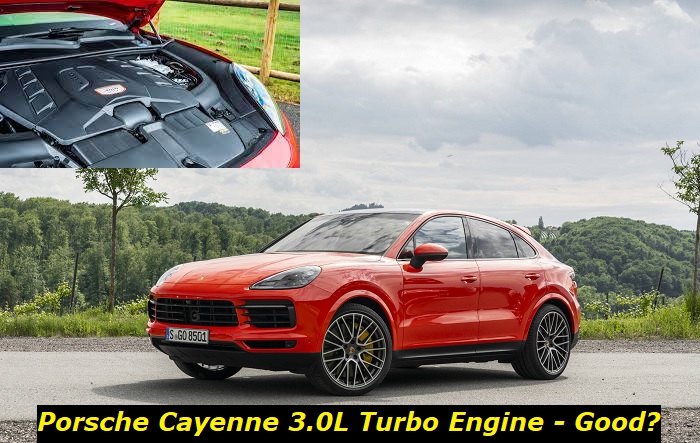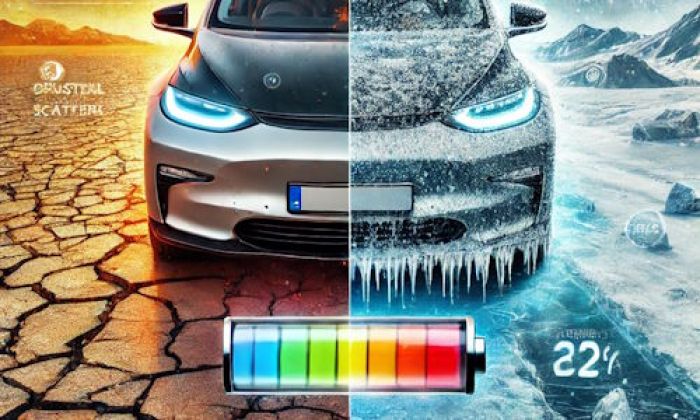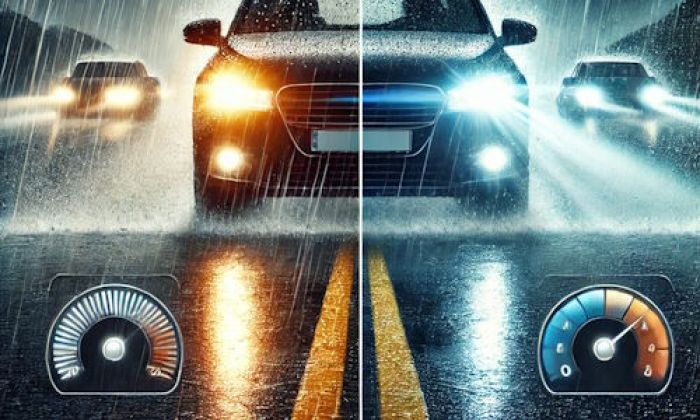Porsche Cayenne is a legendary model that you may like or hate but you are unlikely to feel anything towards this car. It's now sold in its third generation and getting ready to move to the next level with its fourth-gen changes. But for now, we have the third generation available and will talk about its base engine today.
In this article, I want to tell you everything I know about the 3.0L Turbo engine that powers the cheapest version of the Porsche Cayenne in the US. I will outline its problems and advantages. Also, I will look at its durability and will predict how many miles you can drive this car without serious engine repairs and huge investments.

I will cover the following topics:
- The key facts about the 3-liter Turbo engine in the new Cayenne.
- How many miles will the base engine last in your Cayenne?
- What are the common problems you should expect in this engine?
- Are there any ways to prolong the life of the engine?
Let's get started!
What should you know about the 3.0L Turbo engine in the Cayenne?
In the current generation of the Porsche Cayenne, five different engines are available. I certainly will not tell you about each one because it would take me a lot of time while there are other, more interesting engines waiting, but the base 3-liter engine is certainly worth a touch.
This is the same powerplant that is used in Audi A6, A7, and also A8 in some markets under different codes and names. This is the premium gasoline engine that was first shown by Volkswagen in 2017 and it's pretty fresh to talk about its common problems. But I will try to figure out something for you.
And here are some key facts you may want to know about the engine:
- this is the 3.0L turbocharged V6 engine codenamed MDC.BE that is included in the VW line of EA839 engines;
- the engine offers 355 horsepower and 332 lb-ft of torque which is not bad but this is the weakest Cayenne version you can get now new;
- the engine is paired with a very reliable and good ZF 8HP transmission which is the 8-speed automatic unit;
- the twin-scroll turbocharger in this engine has an intercooler which is quite unusual for gasoline turbo engines;
- the timing system is driven by chain, both camshafts are fitted with valve timing control systems to make the engine more efficient;
- this is the direct injection engine, so it will most likely have problems with carbon buildup when it hits 50K miles or more;
- the engine offers 17 MPG in the city traffic and 22 MPG on highways which is pretty good for such a vehicle.
Well, in terms of gas mileage, you shouldn't expect to see those wonderful numbers on the screen of your trip computer. In most cases, gas mileage will be much worse for your vehicle because I know how you will drive the Cayenne and what kinds of driving styles you will develop after you buy this car.
The engine doesn't seem to be too weak just because it's the base version. I should say that the performance engines that come at higher prices in the Cayenne model are crazily powerful. While the base engine is not bad and can offer you quite flexible driving and a lot of fun when you are behind the steering wheel of your Porsche.
How many miles will the 3.0L Turbo last in the Cayenne?
Well, it's very hard to talk about the average lifespan of the engine that is installed in the Porsche Cayenne. Because it will largely depend on how you drive your car. I know several Cayenne owners and they drive very carefully because they know how much it costs to repair their engines and other parts of this marvelous vehicle.
I believe the average life of the 3.0L Turbo should be considered about 160,000 miles. There are several serious common problems that can reduce the lifespan. Also, I'm sure that there will be people who will drive these cars for more than 200K miles and there will be other drivers who will struggle to take their Cayennes to more than 100K miles.
Luckily, the transmission is really good and it will most likely not require any repairs but the fluid change according to the intervals.
But you will need to remember about regular maintenance and buy only high-quality parts and fluids to drive your Cayenne for a long time and without any problems.
What are the common issues with the 3.0L Turbo engine in the Cayenne?
This engine was released in 2017 and we still don't know a lot about its possible problems that may emerge when the mileage is quite high. But according to data from Audi cars, European Porsche owners, and also professional mechanics, I could still find out something about common problems with these engines.
Here's what I could learn when investigating its issues:
1. Problems with the start-stop system
You don't expect your new car which costs at least $73,000 to throw some kinds of problems, error codes, and messages. Also, you expect all the systems to work as they should. But the start-stop system in your new Cayenne is going to glitch heavily.
Unfortunately, there is still no solution for this although Porsche tried updating the software. The start-stop actually works but it can change settings and glitch in other ways. Also, it can randomly refuse to shut off the engine and throw some messages to confuse you.
I recommend deactivating the start-stop system because sometimes its glitches can lead to issues like problems with the engine starting at the traffic light.
2. Issues with bad gasoline
Almost all gasoline that you will find in an average American gas station is bad for this car. It needs the gas with the octane number about 100 which you can buy only in several big chains and you will have to pay a fortune for this gasoline.
Don't want to overpay for fuel? OK, then you may have problems with cylinder walls. Low-octane gas will have aftereffects like random explosions in the cylinders and will cause some micro damage to the cylinder walls when affecting the piston.
It's your choice what kind of gasoline you buy, but I don't recommend trying to economize money on gas if you own the Porsche Cayenne.
3. Carbon buildup on intake valves
This engine was made before combined (port plus direct) injection was largely used in new powerplants. So, the manufacturer only introduced direct injection. This leads to some problems because fuel doesn't go through the intake valves and doesn't wash off the carbon buildup that inevitably forms on the valves.
After some time, the valves won't close properly and this will cause losses in compression and overall problems with engine power. You will have to pay for valve cleaning which is going to cost you a fortune in the dealership. Actually, anything in the Porsche dealership is going to cost you a fortune.
4. Overheating problems
I don't know why but there are hundreds of comments in Porsche forums saying that the engine is prone to overheating. After some research, I managed to find some professional comments and it appeared to be that the radiators in these vehicles tend to get clogged and dirty. Professional mechanics recommend having the radiators cleaned every year to avoid overheating.
If you allow the engine to overheat, it will most likely die prematurely. High-performance engines don't live long if something is wrong with their working temperature.
What should you do to prolong the engine's life?
You should pay attention to all of the common problems that I've listed above. Also, you need to remember such important things:
- replace the timing chain at least at 100,000 miles or once it starts rattling;
- change the transmission oil when needed according to the common-sense intervals;
- have the valves cleaned every 50,000 miles to avoid an underperforming engine;
- use high-quality and high-octane gas only;
- avoid using aftermarket fluids and parts for servicing and maintenance of your Cayenne.
Overall, the engine won't require a lot of attention till it reaches 100K miles - just regular maintenance will be enough. After that, some minor problems start attacking you and your budget.
If one of the fatal problems happens with this engine, repairing it may not be a good choice. Sometimes, it's even better to scrap a car and buy the new one.
Final thoughts
I believe you will love the way the Porsche Cayenne 3.0L Turbo engine goes. It's really fun to drive. Although it's the cheapest engine in the model, it provides you with wonderful quality of driving, great acceleration, cool sound, and also reasonable fuel consumption.
But anyway, you should be aware of the common problems that may happen with this engine. It's not that hard to notice that it's not a problem-free powerplant. But if you drive it reasonably, in accordance with its possibilities, you will enjoy your Cayenne for many years without any serious problems and breakdowns.
About the authors
The CarAraC research team is composed of seasoned auto mechanics and automotive industry professionals, including individuals with advanced degrees and certifications in their field. Our team members boast prestigious credentials, reflecting their extensive knowledge and skills. These qualifications include: IMI: Institute of the Motor Industry, ASE-Certified Master Automobile Technicians; Coventry University, Graduate of MA in Automotive Journalism; Politecnico di Torino, Italy, MS Automotive Engineering; Ss. Cyril and Methodius University in Skopje, Mechanical University in Skopje; TOC Automotive College; DHA Suffa University, Department of Mechanical Engineering






Add comment